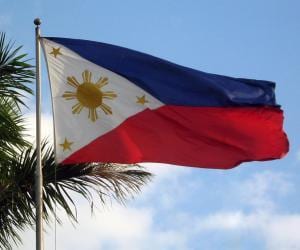Philippines takes action over undocumented POGOs staff

The Philippines Department of Labour and Employment (DOLE) has moved to simplify the process for offshore gaming industry employees to apply for work permits, with 8,000 were found to lack necessary documentation in the first half of the year.
Bureau of Local Employment director Dominique Tutay said that 51,000 AEPs were issued to POGO workers in the six months to 30 June.
The 8,000 working across the country’s 177 Philippines Offshore Gambling Operators (POGOs) had not secured an Alien Employment Permit (AEP), though Tutay noted that 1,000 had since secured the permit. However, a further 6,000 had not complied with orders to secure an AEP, and had been reported to the Bureau of Immigration as a result.
To simply the process of applying for the necessary work permits and registering for income tax, DOLE is to set up a so-called “one stop shop” at its office in the country’s National Capital Region.
The office, in a region where 171 of the 177 licensed POGOs are based, contains counters where workers can apply for documentation from the Bureau of Internal Revenue (BIR) and Professional Regulation Commission (PRC). This allows the employees to secure a Taxpayers’ Identification Number and Special Temporary Permit.
It comes after senior politicians last week called for an investigation into illegal immigration and tax evasion within the Philippines’ offshore gambling hubs. The Philippines has seen an influx of foreign workers from China, especially in the wake of Cambodia announcing plans to shut down its online gaming industry by the end of 2019.
Labour Secretary Silvestre Bello III thanked POGO agents and principals that had responded to government calls to secure permits for their foreign workers. He said new applications would be fast-tracked with help from the BIR, PRC, Bureau of Immigration (BI) and the Philippine Amusement and Gaming Corporation (PAGCOR).
“Similar one-stop shops will be established in other AEP application-rich areas such as Cagayan Region, Central Luzon, Calabarzon, Central Visayas, and Davao Region,” Bello added.
Bello warned that these centres would be closely monitored to ensure there were no attempts to bribe staff.
Tutay, meanwhile, added that a joint inspection team comprised of DOLE, BIR and BI staff was to be established to monitor POGOs and the documentation of their staff.
The fast-tracking of AEP applications will be facilitated through additional equipment and manpower, as well as the introduction of a new online system to track the submissions.
Earlier this year DOLE issued new guidelines on the issuance of work and employment permits to foreign workers, as part of efforts to ensure as much of its migrant workforce as possible has the necessary documentation.
